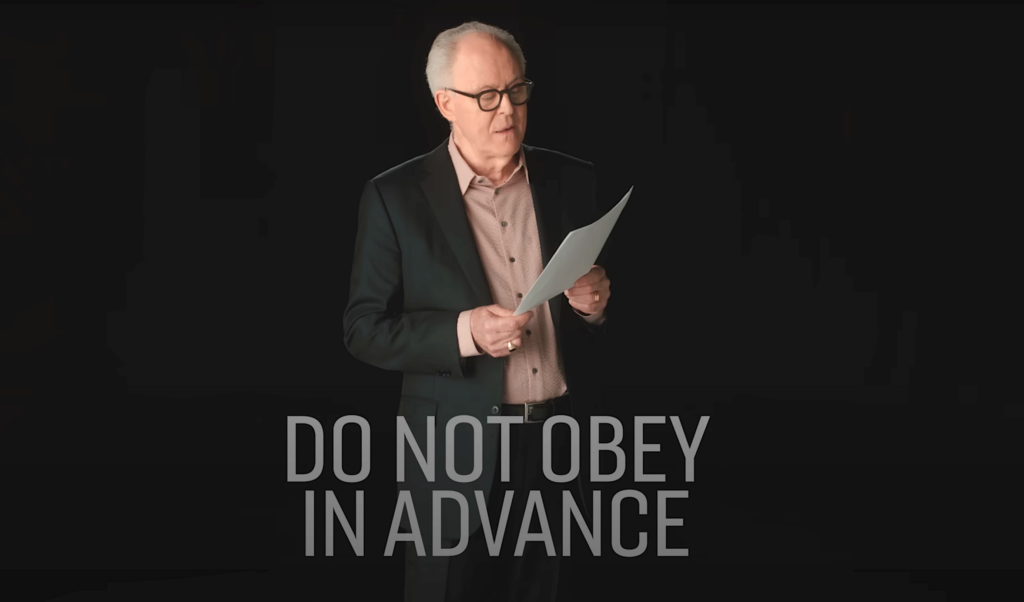In recent years, the political climate in many parts of the world has noticeably shifted, raising concerns about the state of democracy and the persistent threat of authoritarianism. In light of these trends, Timothy Snyder’s On Tyranny: Twenty Lessons from the Twentieth Century stands out as a crucial guidebook for both individuals and societies aiming to defend democratic principles. Snyder’s work, initially published in 2017, has gained renewed relevance in the current sociopolitical landscape, making it imperative to revisit its fundamental lessons.
The Context of Tyranny
Snyder, a historian with a profound understanding of totalitarian regimes, presents twenty lessons that draw from the horrors of the 20th century, specifically the rise of fascism and the implications of unchecked power. The lessons serve as not only warnings but also actionable guidelines. As Snyder stated in a recent commentary, preparing to win not only involves reflection on loss but also envisioning what can be gained through resilience and courage.
Key Lessons from On Tyranny
- Do not obey in advance: Snyder emphasizes the importance of resisting the pressure to conform before laws or directives are officially enacted. This proactive stance helps maintain moral integrity.
- Defend institutions: A call to uphold the integrity of democratic institutions as they are the backbone of governance and societal stability.
- Beware the one-party state: Remaining vigilant against the erosion of multi-party systems is essential in preventing authoritarian control.
- Take responsibility for the face of the world: Snyder urges individuals to engage thoughtfully with societal narratives and actions.
- Remember professional ethics: Upholding ethics in one’s profession is critical to combatting misinformation and potential corruption.
- Be wary of paramilitaries: Keeping watch for the rise of paramilitary organizations is vital as they often threaten public peace and undermine democracy.
- Be reflective if you must be armed: In times of crisis, self-defense must be weighed against the potential for violence.
- Stand out: Highlighting the importance of individual action in the face of oppression.
- Be kind to our language: Language can shape thought; therefore, careful use of language can resist manipulative narratives.
- Believe in truth: Pursuing truth is an act of personal and civic courage.
- Investigate: Encourage critical thinking and skepticism of the information presented.
- Make eye contact and small talk: Simple human interactions can strengthen community ties and promote solidarity.
- Practice corporeal politics: Engaging in physical, protest-based politics can demonstrate dissent effectively.
- Establish a private life: Protecting one’s privacy is increasingly essential as surveillance becomes more pervasive.
- Contribute to good causes: Supporting civic groups and charities can help maintain democratic values.
- Learn from peers in other countries: Observing and drawing lessons from global struggles against tyranny can inform local actions.
- Listen for dangerous words: Recognizing language that incites division or violence is crucial in identifying rising threats.
- Be calm when the unthinkable arrives: Preparedness is key to resisting shock tactics used by oppressive regimes.
- Be a patriot: Defending one’s nation and its values must stem from principles rather than uncritical allegiance.
- Be as courageous as you can: Ultimately, the courage to stand against tyranny is vital for preserving freedom.
These lessons are not just theoretical; they are calls to action, urging individuals to reflect on their roles within the larger society. History has shown us that passivity can lead to complicity in the erosion of democratic norms.
The Role of Media and Misinformation
One crucial aspect discussed by Snyder is the role of media literacy in combating tyranny. He states, “Spending time with long articles and subsidizing investigative journalism are critical actions for every citizen.” In an age where misinformation can spread rapidly, discerning factual information is more important than ever. Supporting journalistic integrity fosters a well-informed populace capable of recognizing and resisting propaganda.
Encouraging Civic Engagement
Ultimately, Snyder’s lessons are a framework for civic engagement. Encouraging small interactions, like making eye contact and small talk, can help rebuild the depleted trust within communities. They teach that every individual’s perspective and action matter in upholding democratic values.
Praise from the Community
Noteworthy public figures, including actor John Lithgow, have shared Snyder’s work, amplifying its relevance. Lithgow’s readings of Snyder’s lessons highlight the urgency and importance of the text, offering accessibility to broader audiences.
Conclusion: The Essence of Resistance
Now, as society navigates through politically tumultuous times, recalling the lessons from On Tyranny becomes not merely relevant but essential. Each lesson serves as a reminder that tyranny, when left unchecked, flourishes amidst complacency. We must each take individual responsibility to create an environment where democracy can thrive. As Snyder poignantly states, “If none of us is prepared to die for freedom, then all of us will die under tyranny.”
The lessons of On Tyranny empower us to act, ensuring that the shadows of history do not repeat themselves in the present. Understanding these insights allows us to confront our challenges and actively participate in shaping the future of our democracy.
By keeping the conversation alive, sharing insights, and fostering a collective sense of responsibility, we can build a robust community resolute in its defense of democratic principles.

